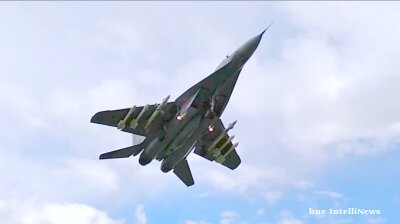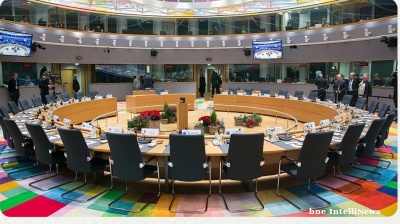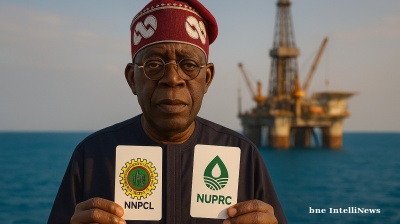South Sudan officials diverted $2.2bn from Oil for Roads scheme, UN report finds, citing “systemic” corruption

A United Nations commission this week alleged that South Sudan’s “Oil for Roads” programme – launched shortly after independence in 2011 to use crude oil revenues directly to finance infrastructure – misallocated about $2.2bn between 2021 and 2024, with more than 90% of planned infrastructure projects never completed as a result.
About $1.7bn in contracts were awarded to firms connected to Vice President Benjamin Bol Mel for road construction work that was never done, the UN Commission on Human Rights in South Sudan said in a 101-page report.
It described corruption in the world’s newest country as “rampant and systemic” and accused a “predatory elite” of systematic and institutionalised looting of the nation’s wealth for private gain.
“Our report tells the story of the plundering of a nation: corruption is not incidental, it is the engine of South Sudan’s decline,” Commission chairperson Yasmin Sooka said. “It is driving hunger, collapsing health systems, and causing preventable deaths, as well as fuelling deadly armed conflict over resources.”
In 2017, the US government sanctioned Bol Mel and two companies associated with him, alleging that one of the firms had received preferential treatment from high-level government officials to do road work in the country, Reuters reported. Washington sanctioned two more of his companies in 2021.
The UN findings are expected to intensify scrutiny from donors and multilateral agencies, possibly resulting in further sanctions, unless reforms are implemented. Human Rights Watch (HRW) and other watchdog groups have urged donors to tighten oversight of South Sudan’s oil revenues.
FACTBOX – UN report on South Sudan oil corruption
- $2.2bn misallocated (2021–24): Most funds from “Oil for Roads” siphoned off; over 90% of projects never finished.
- $1.7bn to VP-linked firms: Companies tied to Vice President Benjamin Bol Mel won major contracts but failed to deliver.
- Systemic corruption: UN calls graft “rampant and systemic,” driven by a “predatory elite.”
- Humanitarian toll: Corruption blamed for hunger, collapsing health services, preventable deaths, and fuelling conflict.
- Oil dependence: Oil provides >90% of revenue; reserves ~3.5bn barrels. Output fell from 350k bpd (2011) to 150k bpd (2024).
- Economic collapse: GDP shrank from $12bn in 2011 to $5.4bn in 2024 (World Bank).
- Donor pressure: ICG warns sanctions likely; HRW urges tighter oversight of oil revenues.
South Sudan has proven reserves of about 3.5bn barrels – the third largest in sub-Saharan Africa after Nigeria and Angola. Output peaked near 350,000 barrels per day (bpd) at independence in 2011. By 2024, production was down by 57% to 150,000 bpd, owing to years of civil war, underinvestment and insecurity.
Oil revenues still provide more than 90% of government income and export earnings, the UN report said, creating extreme dependence on global price movements. South Sudan’s GDP stood at about $12bn in 2011, according to World Bank data, but as of 2024 it had fallen by 55% to $5.4bn.
Loan-backed oil deals, where future barrels are mortgaged for immediate financing, have further constrained fiscal space and tied South Sudan’s state budget to volatile oil markets.
In addition, all crude exports flow north through Sudan to Port Sudan on the Red Sea, leaving South Sudan vulnerable to disruptions from transit fee disputes and Sudan’s own internal conflict. Repeated shutdowns have exposed the country’s reliance on its neighbour’s infrastructure, with no alternative pipeline routes available despite years of proposals.
In 2019, the government signed agreements with investors to build two refineries (one in Bentiu, Unity State; another near Paloch, Upper Nile State), each designed for around 5,000–10,000 bpd, but financing and insecurity have delayed progress.
The IMF and World Bank warn that South Sudan’s narrow dependence on oil revenues reflects a “resource curse” dynamic, underscoring the urgent need for economic diversification and stronger oversight of revenue flows. Without reform and renewed investment, oil output will continue to decline, threatening fiscal stability and deepening humanitarian crises.
News

North Korean leader oversees test of AI-powered attack drones
Pyongyang unveiled its first attack drones last year, a move that experts warned was closely linked to its growing military partnership with Russia, and may also be linked to Chinese agencies supplying Pyongyang with technical support.

Explosion kills five at Afghan-Pakistan border migrant camp
The blast struck on the evening of September 18 evening in Chaman, a Pakistani border town, at a taxi stand where Afghan migrants and local residents had assembled.

Estonia’s foreign minister summons Russia’s chargé d’affaires over 12-minute incursion in Estonia’s airspace
Estonia's Ministry of Foreign Affairs on September 19 summoned the chargé d’affaires of the Russian Federation in Estonia to lodge a protest for an "unprecedentedly brazen" violation of Estonia’s airspace after three MiGs entered its airspace.

China rejects US "bullying" over Latin American partnerships
China has once again rejected American efforts to pressure Latin American nations into reducing ties with Beijing, with a foreign ministry spokesperson asserting the region's right to choose its own development partners independently.



